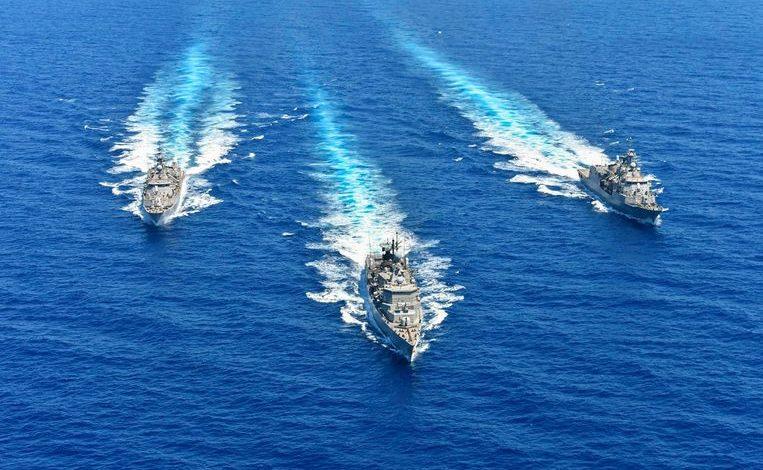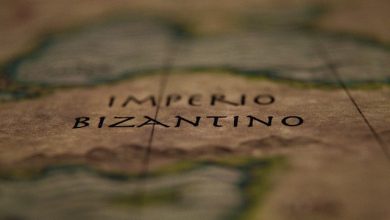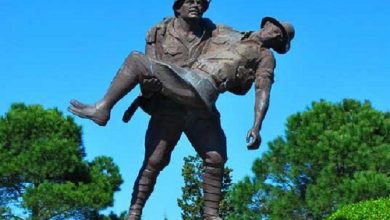Is there a threat of military conflict between Greece and Turkey? This is what’s going on

Turkey plays a high game in the conflict for energy resources in an area in the Mediterranean claimed by Greece. Ankara, on the one hand, and Athens and EU allies on the other, have sent naval ships to disputed waters south of Turkey. “The slightest spark could lead to catastrophe,” warns the German Foreign Minister.
NATO countries – Greece and Turkey – are arguing over waters around Crete and Cyprus, which they both claim. Oil and gas deposits under the seabed are suspected in the area. Turkey has already sent several research vessels to the region, accompanied by naval ships and combat aircraft.
Greece started a military exercise south of Crete and Cyprus on Wednesday with EU countries: France, Italy, and Cyprus. Not coincidentally when Turkey is also sailing around in the waters. “The tension and instability in the East Mediterranean have increased disputes over maritime areas,” the Greek Ministry of Defense announced the “cooperation initiative” in a press release.
The military exercise continues to this day. Frigates and fighter jets are used for the display of power.
Exclusive Economic Zone
It is not new that Greece and Turkey are on a collision course with each other. Both countries have long been engaged in a lingering dispute over the territorial waters between Cyprus and Crete.
According to Athens, the area south of the Greek island of Kastellorizo belongs to their Exclusive Economic Zone (EEZ). An EEZ is an area that extends 200 nautical miles (370.4 km) off the coast of a state. Within this zone, a country has several rights, such as the right to exploit the available raw materials, the right to fishing, and the right to scientific research.
Just here, the shoe pinches. Kastellorizo is barely a handkerchief in size (about 9 square kilometers), has 500 Greek inhabitants and is less than two kilometers from Turkey.
The UN Convention on the Law of the Sea stipulates that the nearest inhabited territory of a country may claim the waters. This division does not apply to Turkey. Due to the tiny island of Kastellorizo alone, approximately 40,000 square kilometers of seabed belongs to the Greeks, instead of the Turks.
Controversial deal
In mid-August, Ankara sent the research vessel Oruç Reis to the territory claimed by the Greeks. Turkey is screening with the controversial Memorandum of Understanding agreement it concluded with Libya at the end of last year. In exchange for arms support to the government in Tripoli, the sea strip between the Libyan and Turkish coasts was then divided.
A new exclusive zone has been drawn up whereby the maritime area between the islands of Cyprus and Crete falls under Turkey and is therefore much more favorable for Ankara. However, the signed agreement did not take into account the three Greek islands (Rhodes, Karpathos, and Crete) that lie to the left of that zone.
A “blatant violation of international maritime law,” Greece labeled the deal. The European Union already warned that stability in the region was at risk. Today, the demarches are again closely monitored.
Shooting practice
Especially now that Turkey has announced that it is extending the mission of its research vessel Oruç Reis. “The seismic activities (…) will take place from August 27 to September 1,” the Turkish navy said yesterday.
In a meeting with the state press agency Anadolu, Defense Minister Hulusi Akar made it clear that Turkey will continue these activities “as long as necessary”. “There is no end date,” it said. The news threatens to fuel mounting tensions with Athens even further.
Turkey also announced new military exercises in the Mediterranean. The navy will hold gunnery exercises off the coast of Iskenderun on 1 and 2 September. That zone is located to the northeast of Cyprus.
Despite German mediation, tensions between Greece and Turkey have only increased in recent days. An attempt earlier this week by German Foreign Minister Heiko Maas to get Athens and Ankara into talks failed. On Wednesday, Maas warned that a small accident could cause a major disaster. “The tiniest spark can lead to catastrophe,” it said.
Donald Trump
The Mediterranean muscle gusset role is also drawing the attention of the United States. President Donald Trump has had telephone contact with Greek Prime Minister Kyriakos Mitsotakis and discussed the crisis, the office of the Greek Prime Minister said yesterday. According to Greek media, Trump also had an interview with Turkish President Recep Tayyip Erdogan.
Mitsotakis has informed Trump that he believes Turkey’s actions “endanger stability in the region and the cohesion of NATO.” It is not known what Trump discussed with Erdogan.




